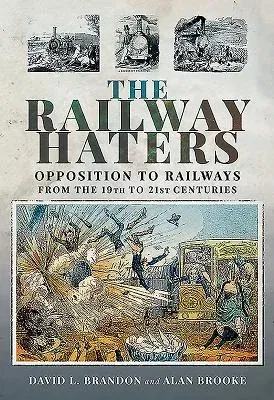David L Brandon
(Author)The Railway Haters: Opposition to Railways, from the 19th to 21st CenturiesHardcover, 16 September 2019

Qty
1
Turbo
Ships in 2 - 3 days
In Stock
Free Delivery
Cash on Delivery
15 Days
Free Returns
Secure Checkout

Print Length
208 pages
Language
English
Publisher
Pen and Sword Transport
Date Published
16 Sep 2019
ISBN-10
1526700204
ISBN-13
9781526700209
Description
Product Details
Authors:
Book Format:
Hardcover
Country of Origin:
GB
Date Published:
16 September 2019
Dimensions:
25.4 x
17.78 x
3.05 cm
Genre:
British
ISBN-10:
1526700204
ISBN-13:
9781526700209
Language:
English
Pages:
208
Publisher:
Weight:
1179.34 gm